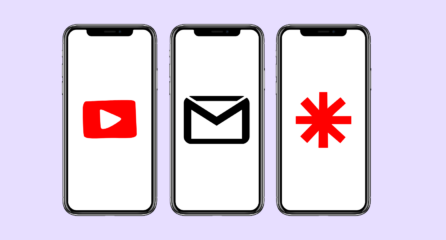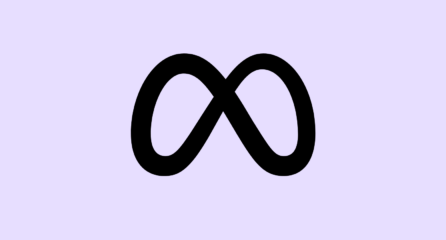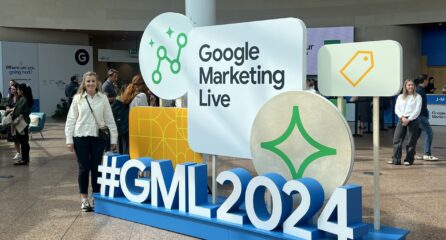Hannah reveals the truth behind Pay Per Click advertising in her latest article. It’s so much more than just counting clicks and a whole lot to do with creativity.
There’s a tendency to pigeonhole the various digital marketing disciplines. Content creators are manic creative types, the social media and out-reach team are optimistic busybodies, SEOs are technical prodigies and the PPC execs, well, they analyse numbers and count clicks.
And while there’s probably a degree of truth to these rather broad stereotypes, the latter is the most misleading. I’m here to tell you that PPC (Pay Per Click) is so much more than the innate ability to decipher data. It’s about knowing what makes web consumers tick and getting creative with the approach.
PPC: It’s not just Numbers.
I was never any good at numbers at school. If you were to tell my old maths teacher that I’m forecasting budgets and bids and working out percentages and averages on a daily basis, she’d probably cough up her coffee. But I do, and although having a grasp of numbers is extremely helpful for PPC success, it’s by no means the be all and end all. Not even a bit.
Numbers aside, a little creativity and a more holistic approach to Pay Per Click marketing really can transform a seemingly well-performing PPC campaign. In this article, I’ll list some of the standard PPC functions, and discuss how they need a creative mind to make them work to the best of their ability.
Keywords
I was once told to view keywords as a PPC account’s salespeople. If they’re good at their job, they’ll engage in good quality, relevant leads. If they’re bad, they’ll waste money, space and management time.
Keyword research

To get the golden list, a sound keyword researcher will have a firm grasp of the English language, as well as a detailed knowledge of consumers’ search habits.
The latter is particularly important for a couple of reasons. Quite often a client will say ‘we know what keywords we want to buy’, or provide us with a list they want to target. While these are very useful, they tend not to touch the sides when it comes to the keyword variations out there.
It’s the PPC account manager’s job to find the likely-to-convert long-tail search queries that will turn clicks into sales. With spoken search becoming more common, it’s also our responsibility to make sure budget-eating ‘research’ keywords are targeted correctly. Whilst these can generate some pretty irrelevant traffic, allocating budget to target customers in the research phase of their buying cycle is a great way to create targeted re-marketing opportunities down the line.
Keyword Matches
Keyword matches can be a tricky art to master. A creative PPC manager can assess a service or product and develop an on-going strategy that considers the budget and ensures that keywords perform to their maximum potential. This will frequently use a combination of keyword matches, often bearing in mind the sector.
The most creative PPC strategies understand that keywords are an on-going element of the PPC account and not just a means to an end.
The Ad copy
Social media types might think they’ve got it hard with Twitter, but it takes a savvy linguist to make just 180 characters (plus 35 for a display URL) deliver a brand message, a call-to-action plus any key product information. This kind of microcopy writing is a skill. Getting it right is the difference between a click and an impression – and most importantly gives the opportunity to let a landing page convert. It does take time and data to discover what wording better intrigues our potential consumers for each client, so having an analytical mind helps when it comes to testing what works. However, being able to come up with snappy sales copy is vital to the success of any ad.

Budget Optimising
Anyone can spend a fortune on Adwords. For some peculiar reason, Search Engines make it very easy to do so… But not everyone has a wad of spare cash to throw into Google’s bottomless pockets, so getting creative with an account’s PPC spend is essential.
How can we make a budget, however small or large, go further? Well, allocating funds where we know conversions are more likely to occur can make the campaign significantly stronger. This includes analysing the performance of keywords, times of the day, geographic locations and devices and allocating budgets accordingly.
The Landing Page
Many people will put all their focus into driving relevant traffic to a website. This is very important, but when we drive even the most relevant traffic to a landing page that just isn’t up to scratch, the traffic simply won’t convert.
Landing page conversion optimisation is a huge aspect of PPC and is where the more traditional creativity comes into play.

The Design
Although web design isn’t in the PPC account manager’s remit, advising on a basic wireframe for a landing page is becoming increasingly so. Why? Well, we’re usually judged on the number of enquires or sales generated by the PPC activity. And if we’re directing great quality traffic to a site that is fundamentally flawed on a visual level, we’re not going to have much luck getting it to convert! Landing pages must be easy to navigate and designed in a way that promotes an easy conversion.
The Call To Action
Pointing traffic at the fanciest-looking site on the web is great, but web users’ attention spans are limited and they can be easily distracted. If a landing page doesn’t have a clear and precise call-to-action, the paid traffic is less likely to convert. Getting inside the brain of the customer and advising on the wording and placement of a call-to-action is an important part of the PPC account manager’s role.
Ad Extensions
The Ad extension; our all-mighty saviour! The giver of more characters! The provider of extra information! Where would we be without it?
Sitelinks, Callouts, Location, Call, Review & App Extensions have given paid search marketers extra room to really push their product or service. However, there’s also a tendency for advertisers to be lazy with them. Using blanket extensions across all campaigns can limit the potential of getting a defined message across and can also undermine an actual ad’s message.
Taking the time to give each campaign its own dedicated ad extensions really does pay. It means we can reinforce what the keyword and ad have already done, and convince the audience that our site is the most relevant to them. We can even schedule ad extensions to appear at certain times of the day or on specific devices in order to improve conversions.
Remarketing
After successfully getting people to a website, it’s time to utilise this hard-earned data. Remarketing can get a bad rep if it’s used solely to frantically stalk people around the web begging them to convert, but a smart PPC account manager can use remarketing creatively and effectively to secure sales and brand awareness. Use it well, and it can have a really positive impact on the conversion rates and CPA of an Adwords account.
Adwords allows us to group audiences depending on the pages of the website they visited, how they behaved on your site and even when they visited. Once these audiences are defined, we can show them an extremely targeted message that we know they are likely to find helpful (rather than creepy and annoying). In this situation, a little creative thinking can go a long, long way.
Paid media at Loom
I’m not proposing that we liken a creative PPC strategy to a tear-provoking sonnet or a beautifully handcrafted armchair. However, I am suggesting that creatively utilising Adwords tools can secure a more imaginative, proactive PPC strategy and can make your digital marketing efforts go a lot further.
At Loom, we work on a variety of PPC campaigns from the huge to not so huge, from lead generation to eCommerce. Our consistent results and proven ROI resulted in us being awarded Google Premier Partner status – this means you can trust us to manage your Adwords account and generate significant results.
Each account poses its own challenges, restrictions and creative avenues, and it’s our job to find exactly what works for each of them. Discover more about our Paid Search services today – give us a call on 0117 923 2021 to chat to the team today.




